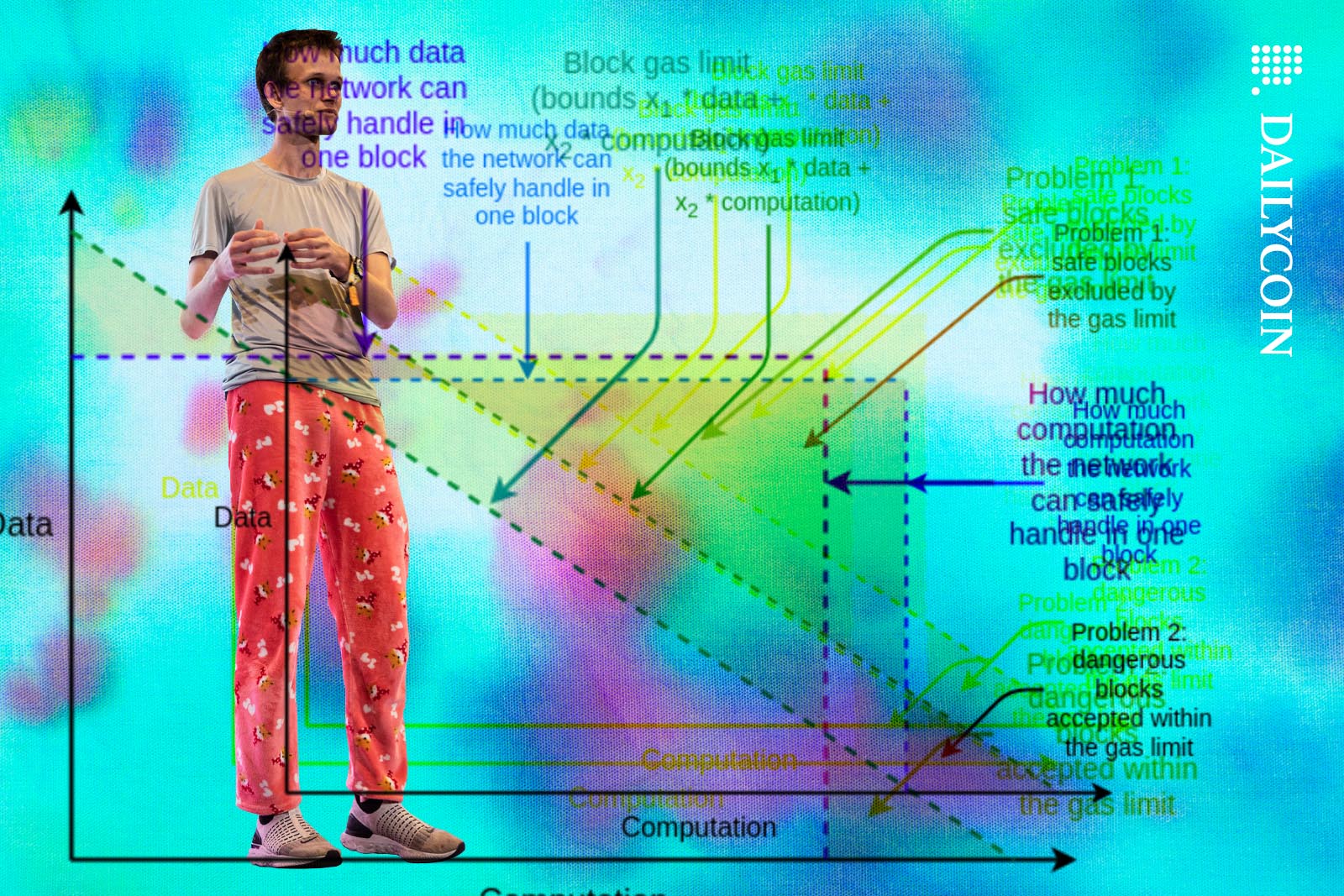
- Ethereum co-founder Vitalik Buterin has proposed a significant change to the network’s gas model.
- The most recent proposal builds on changes made with the introduction of blobs.
- Users have questioned whether the proposal will solve network congestion concerns.
Ethereum‘s gas fee model may be set to undergo another overhaul.
On May 9, Ethereum co-founder Vitalik Buterin argued that the network’s fee model could be more efficient by adopting a multidimensional gas approach that more accurately reflects the different types of effort required to process transactions. In line with this argument, the developer has submitted a new Ethereum Improvement Proposal, EIP-7706, to introduce a gas category for calldata, which is a feature that allows users to send data or messages with transactions.
Sponsored
In response to the proposal, the biggest question has been whether this gas model overhaul can tackle Ethereum’s network congestion concerns.
What You Need to Know About EIP-7706
As highlighted in Buterin’s May 9 post, Ethereum already operates a multidimensional gas system thanks to the Dencun upgrade, which introduced a separate fee market for blobs containing Layer 2 data. Proposed on Tuesday, May 14, EIP-7706 intends to introduce a third fee market for calldata.
Like the other gas categories, the calldata gas fee market will include a base fee representing the computational effort to process the data and a priority fee to incentivize nodes.
Buterin contended that introducing the third gas fee market would boost network efficiency by allowing developers to significantly decrease the theoretical calldata size per block, potentially leading to marginally faster and cheaper transactions overall.
"The theoretical max calldata size of a block would be greatly reduced, while basic economic analysis suggests that on average, calldata would become considerably cheaper," he wrote.
A Salve for Ethereum’s Congestion Concerns?
High gas fees have remained a hurdle for Ethereum’s scalability. Over the years, the network has been known to become unusable during periods of peak demand as everyone’s fees skyrocket.
Sponsored
While Buterin’s most recent proposal aims to optimize these fees, it is not likely to prevent spikes during times of high activity as fees will still be influenced by market forces of demand and supply.
At the time of writing, Ethereum’s comprehensive solution to scaling concerns still lies in its danksharding roadmap—a plan to bolster the network’s throughput by breaking down transaction data and the required computational effort into smaller, more manageable shards. The network took the first step towards danksharding with the introduction of proto-danksharding with the Dencun upgrade in March 2024.
On the Flipside
- EIP-7706 is still in the draft phase, meaning it can undergo several changes.
- Ethereum fees have plummeted to yearly lows over the past month as activity has shifted to Layer 2 chains following the Dencun upgrade.
Why This Matters
Buterin’s most recent proposal promises to bring greater efficiency to the Ethereum network, which could lead to a noticeably improved user experience with faster and cheaper transactions. Despite these benefits, there is no clear indication that it would solve congestion challenges faced during periods of high activity.
Read this for more on Ethereum:
Ethereum Gas Fees Plummet to Lowest Levels in Years
See why outrage continues to trail the conviction of Alexey Pertsev:
Why Conviction of Tornado Cash Dev Has Sparked Outrage


